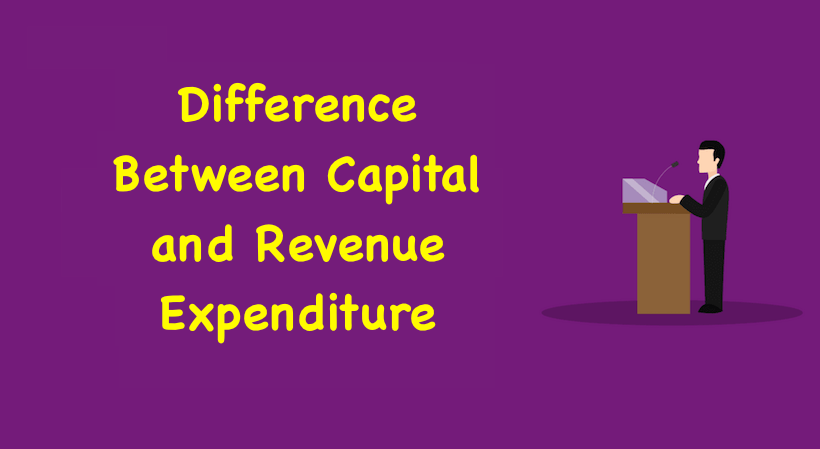Difference between Capital Expenditure and Revenue Expenditure:The following are the points of distinction between capital expenditure and revenue expenditure: The Revenue Expense relates to the operations of the business of an accounting period or to the revenue earned during the period or the items of expenditure, benefits of which do not extend beyond that period. Capital Expenditure, on the other hand, generates enduring benefits and helps in revenue generation over more than one accounting period. Revenue Expenses must be associated with a physical activity of the entity.
Capital Expenditure:
This represents expenditure incurred for the purpose of acquiring a fixed asset which is intended to be used over long term for earning profits there from. e. g. amount paid to buy a computer for office use is a capital expenditure. At times expenditure may be incurred for enhancing the production capacity of the machine.This also will be a capital expenditure. Capital expenditure forms part of the Balance Sheet.
Revenue expenditure:
This represents expenditure incurred to earn revenue of the current period. The benefits of revenue expenses get exhausted in the year of the incurrence. e.g. repairs, insurance, salary and wages to employees, travel etc. The revenue expenditure results in reduction in profit or surplus. It forms part of the Income statement.
Difference between Capital Expenditure and Revenue Expenditure
(i) Capital expenditure is incurred in acquiring or improving permanent assets which are not meant for resale. But revenue expenditure is a routine expenditure incurred in the normal course of business and includes cost of sales as also the upkeep of fixed assets etc.
Advertisement
Content in this Article
(ii) Capital expenditure seeks to improve the earning capacity of the business whereas revenue expenditure is incurred to maintain the earning capacity of the business.
(iii) Capital expenditure is normally a non-recurring outlay but revenue expenditure is usually a recurring features.
(iv) Capital expenditure produces benefits over several years. Hence, only a small part is charged as depreciation to income statement and the rest appears in the balance sheet. But revenue expenditure is consumed within an accounting year and the entire amount is charged to the (current year’s) income statement. Hence, it does not appear in the balance sheet. Deferred revenue expenditure is however an exception to this rule.
Comparison Chart
| Meaning | CAPITAL EXPENDITURE | REVENUE EXPENDITURE |
|---|---|---|
| Meaning | The expenditure incurred in acquiring a capital asset or improving the capacity of an existing one, resulting in the extension in its life years. | Expenses incurred in regulating day to day activities of the business. |
| Term | Long Term | Short Term |
| Capitalization | Yes | No |
| Shown in | Income Statement and Balance Sheet | Income Statement |
| Outlay | Non-recurring | Recurring |
| Benefit | More than one year | Only in current accounting year |
| Earning capacity | Seeks to improve earning capacity | Maintain earning capacity |
| Matching concept | Not matched with capital receipts | Matched with revenue receipts |
Recommended

